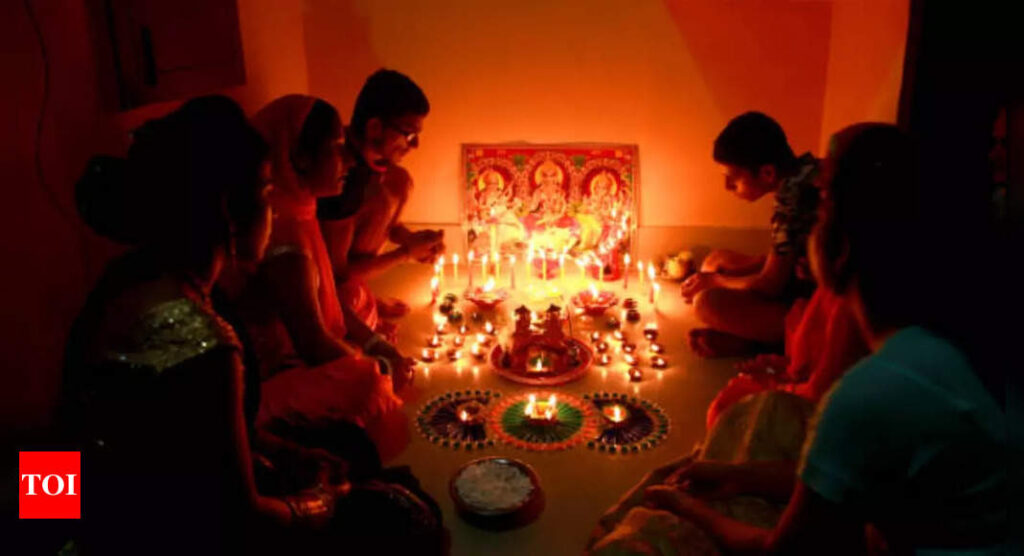Exploring the Significance of Kheel, Khilona, and Batasha in Diwali Puja Traditions |

There is religious and cultural significance behind the tradition of offering puffed rice and batasha to Lakshmi and Ganesha on Diwali. These items symbolize prosperity, happiness, and sweetness and are offered as bhog to seek the blessings of Lakshmi and Ganesha. Diwali, the festival of light and joy, is a time when people decorate their homes and prepare sweets. Kheel and batasha are an integral part of this tradition.
On Diwali, all family members come together to worship and share prasad. Eating kheel and batasha together fosters love and unity within the family. The tradition of offering kheel and batasha to Lakshmi and Ganesha on Diwali has both religious and cultural significance and has been followed for centuries.
Religious beliefs
It is believed that kheel and batasha are dear to Goddess Lakshmi and that offering them as prasad pleases her. On Diwali, Goddess Lakshmi brings wealth and prosperity into the home, and offering these items is said to bring her blessings. Lord Ganesha also loves puffed rice and batasha. Offering these items to Ganesha is believed to bring success in all endeavors. Kheel and batasha are considered symbols of auspiciousness; their white color represents purity and sanctity. In Hinduism, offering sweet foods to deities holds special significance.
Importance of Kheel and Batasha in Diwali puja
Kheel, or puffed rice, symbolizes prosperity and growth. The lightness and size of puffed rice suggest that happiness and prosperity should come gradually and steadily, much like the gentle expansion of puffed rice.
Batasha symbolizes sweetness and auspiciousness. Made from sugar, it represents peace and sweetness in life. By offering batasha, it is believed that sweetness and love will remain in life, granted by the grace of Goddess Lakshmi and Lord Ganesha.
Other offerings besides Kheel and Batasha
In Diwali puja, various sweets like laddu, peda, barfi, and others are also offered to Lakshmi and Ganesha. These sweets are intended to please the deities and bring sweetness into the home. Fruits, such as apples, grapes, and bananas, are also offered, as they are considered dear to Goddess Lakshmi. Additionally, coconut, which is auspicious in all pujas, is offered to both Goddess Lakshmi and Lord Ganesha during Diwali puja.








